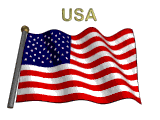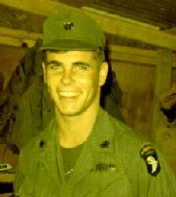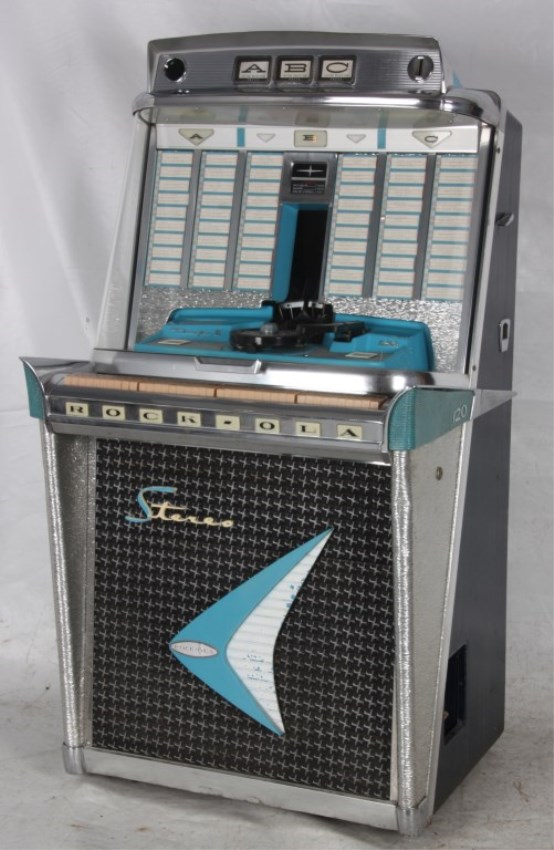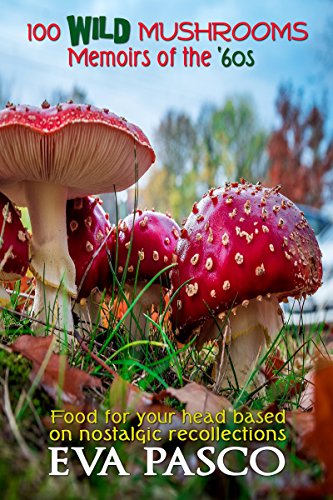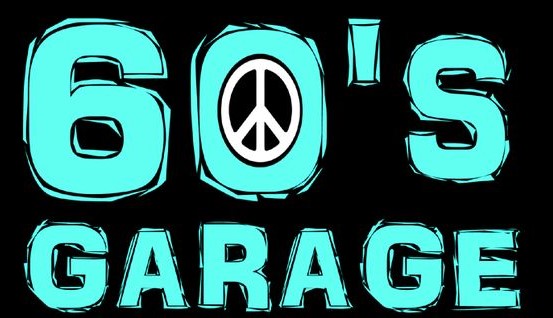
The 60s Garage Band Era
Definition of garage band
: an amateur rock band typically holding its rehearsals in a garage and usually having only a local audience : a
group of people who play rock music together and typically practice in a garage
The 60s decade produced some of the best music of all time. Even
today it is listened to not only by the 60s generation but by our children and grandchildren. Oldies stations
playing the 60s are popping up everywhere. The music is popular today as it was when we were kids. The music of
the 60s generation had rock, instrumentals, love songs, surfing music, songs of protest, hillarious and crazy
songs. The 60s generation of music set the stage for music to come. Countless songs from the 60s generation have
been remade by others. Television commercials used the recordings to sell their products. Movies such as Dirty
Dancing and American Grafitti immortalized a period of our history.Garage rock was a great period of time during
the 60s. Many top acts emerged from hits roots and other rock bands became regional stars.
Garage rock was a raw form of rock and roll that was first popular
in the United States and Canada from about 1963 to 1967. During the 1960s, it was not recognized as a separate
music genre and had no specific name. In the 1970s, some critics referred to the style as "punk rock", the first
form of music to bear this description; although it is sometimes called garage punk, protopunk, or 60s punk, the
style has predominantly been referred to as garage rock.
The term "garage rock" comes from the perception that many such
performers were young and amateurish, and often rehearsed in a family garage. Some bands were made up of
middle-class teenagers from the suburbs, but some were from rural or urban areas, while others were composed of
professional musicians in their twenties.
The performances were often amateurish or naïve, with typical
themes revolving around the traumas of high school life and songs about "lying girls" being particularly common.
The lyrics and delivery were notably more aggressive than was common at the time, often with growled or shouted
vocals that dissolved into incoherent screaming. Instrumentation was often characterised by the use of guitars
distorted through a fuzzbox. Nevertheless, garage rock acts were diverse in both musical ability and in style,
ranging from crude one-chord music (like the Seeds and the Keggs) to near-studio musician quality (including the
Knickerbockers, the Remains, and the Fifth Estate). There were also regional variations in many parts of America
with flourishing scenes particularly in California and Texas. The Pacific Northwest states of Washington and
Oregon had perhaps the most defined regional sound.
The style had been evolving from regional scenes as early as 1958.
"Tall Cool One" (1959) by The Wailers and "Louie Louie" by The Kingsmen (1963) are mainstream examples of the
genre in its formative stages. By 1963, garage band singles were creeping into the national charts in greater
numbers, including Paul Revere and the Raiders (Boise), the Trashmen (Minneapolis) and the Rivieras (South Bend,
Indiana). Other influential garage bands, such as the Sonics (Tacoma, Washington), never reached the Billboard
Hot 100 singles chart. In this early period many bands were heavily influenced by surf rock and there was a
cross-pollination between garage rock and energetic and upbeat party frat rock, though the latter is sometimes
viewed as merely a sub-genre of garage rock.
The "British Invasion" of 1964 greatly influenced garage bands,
providing them with a national audience and leading many (often surf or hot rod groups) to adopt a British
Invasion lilt. The Invasion also inspired new, and often very raw, bands to form. Garage rock bands were
generally influenced by those British "beat groups" with a harder, blues-based attack, such as The Kinks, The
Who, The Animals, The Yardbirds, The Small Faces, The Pretty Things, Them, and The Rolling Stones. A handful of
British garage bands were formed, the most successful being the Troggs. Another influence was the folk-rock of
the Byrds and Bob Dylan, especially on bands such as the Leaves.
Thousands of garage bands were extant in the USA and Canada during
the era and hundreds produced regional hits. Usually thought to be the first to enjoy national success were The
Beau Brummels with "Laugh, Laugh" and "Just a Little", which both reached the top 10 in 1964. Other examples
include: "Fortune Teller" by Des Moines's The Image (1967), "The Witch" by Tacoma's The Sonics (1965), "Where
You Gonna Go" by Detroit's Unrelated Segments (1967), "It's Cold Outside" by Cleveland's The Choir, "Girl I Got
News for You" by Miami's Birdwatchers (1966) and "1-2-5" by Montreal's The Haunted. Boston's Remains, though
only able to make it onto Billboard's Bubbling Under charts, had enough of a following and reputation to open
for the Beatles during their 1966 U.S. tour. Michigan's Shondells released a minor regional hit in 1964 before
disbanding; when it was unearthed by a Pittsburgh DJ in 1965, the resulting success of "Hanky Panky" revived the
moribund career of Tommy James, who formed a new group of Shondells and went on to chart twelve more Top 40
singles.
There have quite a few groups that went on to international fame
and were first classified as garage bands. You can enjoy the music of some of these garage bands which include
some very hard to find songs.
The most recognized garage bands of the 60s. ***
-
The
Sonics - The Tacoma, Washington, crew’s
catalog of simple, grungy tunes, sung wildly, makes them the definite garage rock band. Amazingly,
they’re still going today.
-
The
Troggs - Originally called The Troglodytes,
the British group had already switched to its shorter, catchier moniker by the time it released its
definitive cover of the Wild Ones’ “Wild Thing” in 1966.
-
Sam the Sham and The
Pharaohs - Domingo "Sam the Sham" Samudio
never did explain exactly what a “Wooly Bully” was, but don’t let it stop you from getting down to this
dancefloor staple.
-
Paul Revere & the
Raiders - One of the best garage bands donned
in colonial dress and all
-
The
Kingsmen - At this point, Richard Berry’s “Louie Louie” has been covered hundreds,
probably thousands of times, and yet, it’s still this 1963 take, by some kinds from Portland, that’s
the most well-known, right down to the guitar solo.
-
13th Floor Elevators
- Fronted by
influential songman Roky Erickson, the 13th Floor Elevators were keeping Austin weird way back in 1965,
with a debut album—The Psychedelic Sounds of the 13th Floor Elevators—that encouraged listeners to drop
acid to expand their minds.
-
The
Kinks -
The Davies Brothers went on to have a long recording career, but first made their mark with this
opening salvo of power-pop gold, "You Really Got Me."
-
? and the
Mysterians - The
driving-organ riff steered the band’s 1966 single, “96 Tears,” all the way to No. 1 on the
Billboard charts.
-
Them -
You’ll recognize his voice anywhere even as a 19-year-old. Van Morrison, fronted
the Irish garage band as a teenager before striking out on his
own.
-
The
Seeds -
The Los Angeles band delivered garage rock with twisted psychedelic bent on its influential 1966
self-titled debut.
-
Human Beinz
- noted for hit song
"Nobody Buty Me"
-
Beau Brummels
- They formed in San Francisco in 1964, the band's original
lineup included Sal Valentino, Ron Elliott, Ron Meagher, Declan Mulligan, and John Petersen. They
were discovered by local disc jockeys who were looking to sign acts to their new
label.
-
Bobby Fuller Four
- The Bobby Fuller Four
(sometimes stylized as Bobby Fuller 4) was a popular mid-1960s American rock & roll band started by
Bobby Fuller. With its first incarnation formed in 1962 in El Paso, Texas, the group went on to produce
some of its most memorable hits under Mustang Records in Hollywood, California. The band's most
successful songs include "Let Her Dance", "I Fought the Law", and "Love's Made a Fool of
You."
-
The Castaways
- American rock band from
the Twin Cities in Minnesota, United States. Their first and only hit single was "Liar, Liar". Written
by band leader James Donna and drummer (and band co-founder) Dennis
Craswell.
-
Count
Five - American garage rock band, formed in
San Jose, California in 1964, best known for their hit single "Psychotic Reaction".
-
Cryan
Shames - American garage rock band from
Hinsdale, Illinois. They originally formed as The Travelers with founding members Tom Doody ("Toad"),
Gerry Stone ("Stonehenge"), Dave Purple ("Grape") of The Prowlers, Denny Conroy from Possum River, and
Jim Fairs from The Roosters, Jim Pilster ("J.C. Hooke", so named because he was born without a left
hand and wore a hook), and Bill Hughes. The band's most successful moment came with their cover of The
Searchers song, "Sugar and Spice"
-
Electric
Prunes - American psychedelic rock band,
formed in Los Angeles, California, in 1965. Much of the band's music was, as music historian Richie
Unterberger described it, possessed of "an eerie and sometimes anguished ambiance", and, early on,
mainly consisted of material by songwriters Annette Tucker and Nancie Mantz, though the group also
penned their own songs. Incorporating psychedelia and elements of embryonic electronic rock, the band's
sound was marked by innovative recording technique…
-
The Fifth
Estate - formerly known as The D-Men, is an
American rock band formed in 1963 in Stamford, Connecticut. They are best known for their hit
song "Ding Dong The Witch Is Dead"
-
Five
Americans - a 1960s American rock band, most
famous for their song, "Western Union", which reached number 5.
-
The
Outsiders - an American rock and roll band
from Cleveland, Ohio, that was founded and led by guitarist Tom King. The band is best known for its
Top 5 hit "Time Won't Let Me" in early 1966 five in the U.S. Billboard chart and was their only single
to chart in the Top 20.
-
The
Nightcrawlers - an American garage rock band
formed in Daytona Beach, Florida, 1965. The group is best known for their hit single, "The Little Black
Egg", which was written in 1965 for an Easter concert in which the band opened for The Beach Boys. The
single ultimately reached number 85 on the national charts after its third re-release in 1967. The
group released three other singles: "Cry," "A Basket of Flowers," and "I Don't
Remember.
-
Music
Explosion - American garage rock band from
Mansfield, Ohio, discovered and signed by record producers Jerry Kasenetz and Jeffry Katz. The quintet
is best known for their number two hit, "Little Bit O' Soul", that received gold record status by the
RIAA.
-
Music
Machine - an American rock band formed in Los
Angeles, California in 1966. Fronted by chief songwriter and lead vocalist Sean Bonniwell, the band
cultivated a characteristically dark and rebellious image reflected in an untamed musical
approach.Sometimes it made use of distorted guitar lines and hallucinogenic organ parts, punctuated by
Bonniwell's distinctively throaty vocals.
-
The
McCoys - a rock group formed in Union City,
Indiana in 1962. They are best known for their 1965 hit single " Hang on Sloopy ". Their name was
changed from Rick and the Raiders to The McCoys, taken from the B side of The Ventures hit record
Walk-Don't Run titled "The McCoy"
-
The
Hombres - American garage rock band from
Memphis, Tennessee, known primarily for the 1967 single "Let It Out (Let It All Hang
Out)".
-
The Guess
Who - a Canadian Rock group found
international success from the late 1960s through the mid-1970s with many hit singles, including "No
Time", "American Woman", "Laughing", "These Eyes", "Undun" and "Share the
Land".
-
The
Premiers - a Mexican-American garage band in
the 1960s, best known for their 1964 hit, "Farmer John."
-
The
Riverias - were made up of teenagers from
South Bend Central High School, South Bend, Indiana. (This band should not be confused withThe Guess
Who - a Canadian rock band, formed in Winnipeg in 1965. Initially gaining recognition in Canada, the
group the Coed Records East Coast rhythm & blues band of the same name which had hits in the
late 1950s and the early 1960s.) Originally called the Playmates, they were forced to change their name
as there was already a band with that name. They renamed themselves after an automobile, the Buick
Riviera. They were one of the many bands in America that became part of the frat rock movement in the
early 1960s.
-
Sir Douglas
Quintet - an American rock band, formed in
San Antonio in 1964. With their first hits, they were acclaimed in their home state. When their career
was established (subsequent to working with Texas record-producer Huey Meaux), the band relocated to
the West Coast. Their move coincided with the burgeoning San Francisco psychedelic rock scene of the
mid 1960s to early 1970s. Overall, the quintet were exponents of good-times music with strong roots in
blues and Texas-regional traditions.
-
Soul
Survivors - an American garage rock band from
Denver, Colorado, who were active in the mid-1960s. Included in their roster were Allen Kemp and Pat
Shanahan, who later become members of the Poor before joining Ricky Nelson as members of his "Stone
Canyon Bad" and later the New Riders of the Purple Sage in the late
1970s.
-
Strawberry Alarm
Clock - psychedelic rock band formed in 1967
with origins in Glendale, California, a city near Los Angeles. They are best known for their 1967 hit
single "Incense and Peppermints". Strawberry Alarm Clock, who have been also categorized as acid rock,
psychedelic pop, and sunshine pop, charted five songs, including two Top 40
hits.
-
Syndicate of
Sound - an American garage rock band formed
in San Jose, California that was first active between 1964 and 1970. Through their national hit "Little
Girl", the band developed a raw sound, and became forerunners in the psychedelic rock genre. The group
managed to produce two other charting singles and, after their initial breakup in 1970, have since
reformed with a new lineup.
-
The
Standells - an American garage rock band from
Los Angeles, California, formed in the 1960s, who have been referred to as a "punk band of the 1960s",
and said to have inspired such groups as the Sex Pistols and Ramones. They are best known for their
1966 cover of Ed Cobb’s hit "Dirty Water", now the anthem of several Boston sports teams and is played
following every Boston Red Sox and Boston Bruins home win.
-
The
Trashmen - surf rock band formed in
Minneapolis, Minnesota in 1962. The original lineup of the group featured guitarists Tony Andreason and
Dal Winslow, bassist Bob Reed, and drummer Steve Wahrer. Along with Colorado-based contemporaries The
Astronauts, The Trashmen have been described as "the premier landlocked Midwestern surf group of the
'60s."
Thanks to Time Out at https://www.timeout.com/newyork/music/best-garage-bands-of-all-time
|
